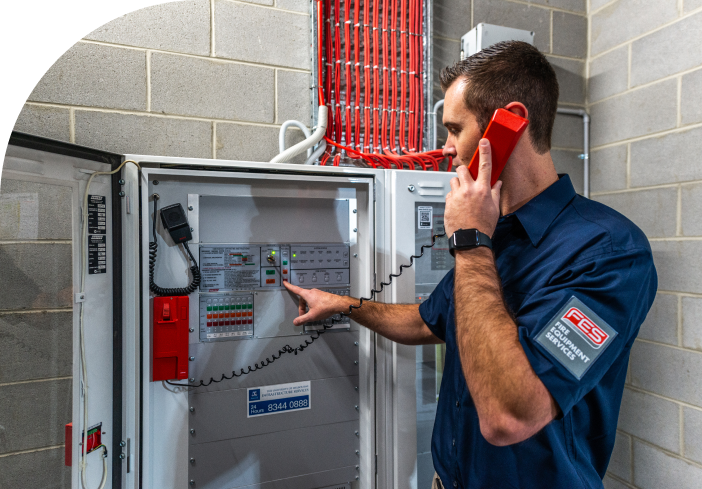Special Hazard Systems
An active fire system installed where water sprinklers would be inappropriate due to causing potential damage. Uses alternate agents to quickly extinguish fires without damaging property.
Read MoreGas suppression systems are fixed fire suppression systems supplying an alternate extinguishing agent. Rather than the standard water sprinkler systems, these active fire systems use powder or gas to smother the fire. Usually installed to protect sensitive equipment or locations where standard water extinguishing systems could cause damage, or where the likely fire occurrences would be fire types that water would make worse.
With a more specialised system, it is important to ascertain if these suppression tools are the right call for your location and as many of them are not automated in the same way sprinkler systems are it is important that anyone operating is adequately trained in compliance with fire and safety training.
Fixed fire suppression systems need to be the right choice for your space. Our professionals will design in collaboration with your needs.
Make sure your system activates when you want it to with correct and expert installation.
Fire safety training with our expert trainers will make sure you and your team know how to use your fixed suppression systems.

Not every fire is the same, while water may be the most effective extinguishing method for some for others it could make things worse. Being able to identify the types of fire you might encounter will help you choose what systems to install in your building. The difference in the type of fire often comes down to what the main fuel of the fire is.
For wood, paper or plastic fire, extinguishing poses limited additional risk outside of the risk of the fire itself. A standard water extinguisher, hose or sprinkler system is appropriate here.
Avoid liquid or wet extinguishing tools for extinguishing flammable liquids. These may spread the flammable liquid across a larger space thereby growing the fire and present danger. Some flammables also combust when water is added while already burning. Fire blankets are also ineffective against flammable liquid burns. Foam or powder-based extinguishing agents are your best choices here.
Wet extinguishing agents and fire blankets are again ineffective against flammable gas fires. Use powder-based extinguishing agents to ensure safe extinguishing.
Liquid and foam extinguishers can cause further combustion or electrical failures when attempting to extinguish electrical fires. Powder or gas based extinguishing agents work best when combatting electrical fires.
Many oils and fats actually increase in flammability when water is added to them. Never extinguish a kitchen fire with a water-based extinguishing agent. Some Powder-based agents, vaporising extinguishers and fire blankets are best used for smothering oil and fat fires.
Gas Suppression systems come in a variety of forms and your installation and design team will help you in choosing the right option for your business. While there are some gas systems using gases specifically manufactured for the purpose, others use more naturally occurring gases. Depending on the gas used the system may or may not be appropriate for use in occupied spaces.
There are a variety of options on the market of gas suppression systems using specifically designed gas to achieve certain results, such as leaving no residue or allowing for use in occupied spaces.
Naturally occurring inert gases, such as Argonite, supply an option for removing oxygen from burning spaces thereby starving the fire. These systems are also often used for their lower environmental impact.
CO2 systems are popular gas suppression systems due to their historical reliability and inexpensive upkeep compared to other gas systems. However CO2 systems are not appropriate for occupied spaces.